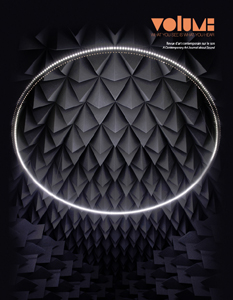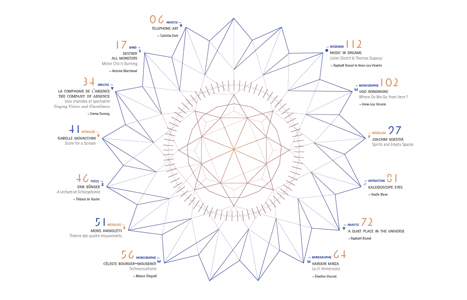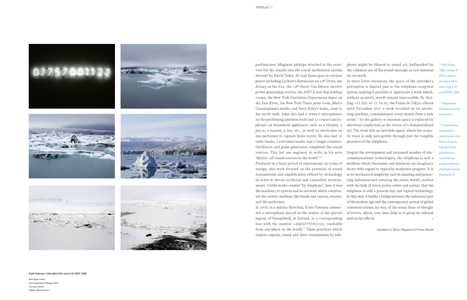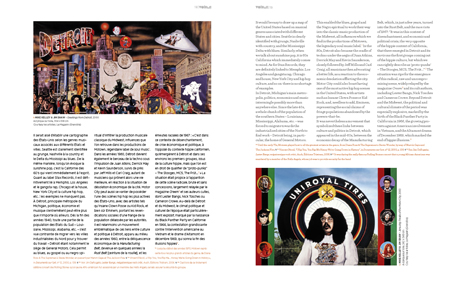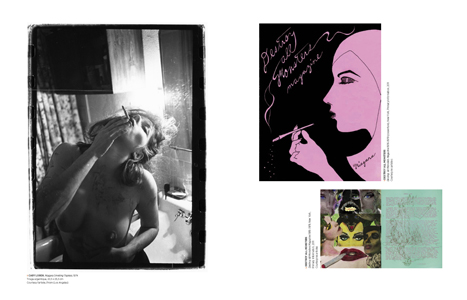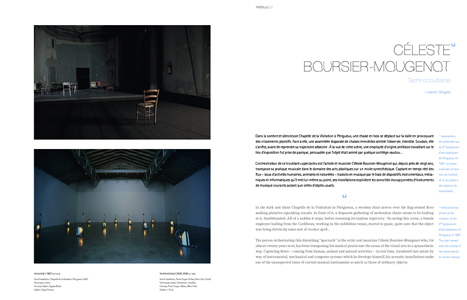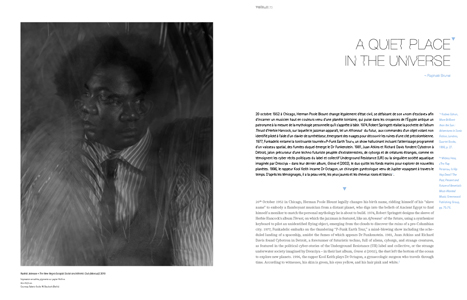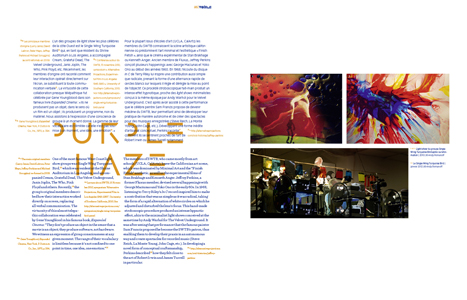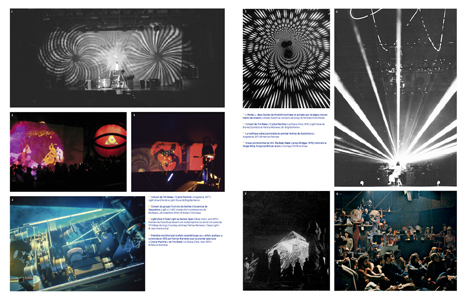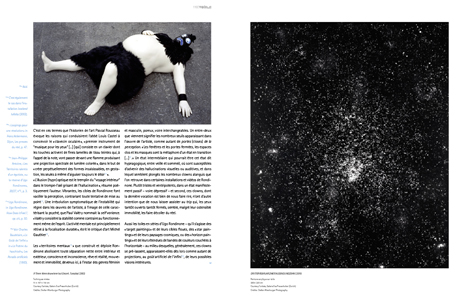5th issue of the contemporary art journal about sound, devoted to the complex relationships between visual and sound forms (critical texts, historical analysis, interviews, artist's interventions...):
Céleste Boursier-Mougenot, Erik Bünger, Destroy All Monsters, Julien Discrit & Thomas Dupouy,
Rashid Johnson,
Kapwani Kiwanga,
Claude Lévêque, Haroon Mirza, Kristin Oppenheim, Katie Paterson,
Ugo Rondinone,
Cauleen Smith, artistic contributions by
Meris Angioletti, Isabelle Giovacchini and
Joachim Koester...
Whatever their degree of “fidelity”, technologies have progressively imposed themselves on our daily life, following the example of the telephone. While the development of modern systems of telecommunication has enabled individuals to be “put in touch”, with growing facility, certain individuals have discovered in them a way to enter into contact with mysterious forces, even, in the case of transcommunication, to perceive signs of the hereafter through troubling visual and auditory apparitions. Immaterial and dissociated from its bodily envelope, the voice thus disembodied, recorded and/or transmitted through the channels of technology, manifestly bears witness to an absence as much as a form of spectrality.
Somewhere between ghost and phantasm, “spirits” tend to get lost… Like a control tower, the brain guides perception and states of consciousness, which can be altered or disturbed by sensorial or psychic phenomena – in particular those due to the ingestion of psychotropic and other hallucinogenic substances. Projecting and thus exteriorizing these “interior voyages”, certain artistic processes and experiments in immersion attempt to reconstitute the sensations and effects of these experiences, all the while participating themselves in the production of mental images.
Volume –
What You See Is What You Hear is the first magazine devoted to
sound issues in art, and to the complex relationships between visual and sound forms, both in contemporary art and history.
Volume is neither a musical magazine, nor a magazine about sound art; rather, it sees sound from the angle of
the visual arts.
The history of relations between sound and art is not recent, but the past few years have seen
many more works, exhibitions, publications and other events whose aesthetic and theoretical content attests to a
growing interest in this medium, and the various ways it is used. Through a broad range of critical and artistic
contributions, it is
Volume's intent to represent a platform observing and analyzing this dynamic, while at the
same time being sure to re-position it within a historical perspective.
The seven issues published between 2010 and 2013 now constitute a concluded series.


